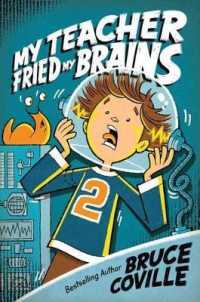Full Description
Carceral logics permeate our thinking about humans and nonhumans. We imagine that greater punishment will reduce crime and make society safer. We hope that more convictions and policing for animal crimes will keep animals safe and elevate their social status. The dominant approach to human-animal relations is governed by an unjust imbalance of power that subordinates or ignores the interest nonhumans have in freedom. In this volume Lori Gruen and Justin Marceau invite experts to provide insights into the complicated intersection of issues that arise in thinking about animal law, violence, mass incarceration, and social change. Advocates for enhancing the legal status of animals could learn a great deal from the history and successes (and failures) of other social movements. Likewise, social change lawyers, as well as animal advocates, might learn lessons from each other about the interconnections of oppression as they work to achieve liberation for all. This title is also available as Open Access on Cambridge Core.
Contents
Introduction Lori Gruen and Justin Marceau; Part I. Carceral Thinking in Animal Protection: Justifications and Repudiations: 1. Saved: the historical roots of humane carceral logics in the United States Paula Tarankow; 2. Criminal animal abuse: interconnectedness, and human morality Richard L. Cupp, Jr; 3. Giving a voice to the voiceless: a prosecutor's efforts to combat animal cruelty Ashley N. Beck; 4. Examining anticruelty enhancements: historical context and policy advances Pamela D. Frasch; 5. Carceral progressivism and animal victims Benjamin Levin; Part II. Animal Law in Context: The Limits of Carceral Strategies: 6. Spectacular immigration enforcement in hidden spaces aging and immigration enforcement Jennifer M. Chacón; 7. Against a 'war on animal cruelty': lessons from the war on drugs and mass incarceration Sam Kamin; 8. Criminalization as a solution to abuse: a cautionary tale Tamara L. Kuennen; 9. Humanizing animals, dehumanizing humans Aya Gruber; 10. Treating humans worse than animals? Exposing a false solitary confinement narrative Delcianna Winders; 11. Carceral logics beyond incarceration Justin F. Marceau; Part III. Implications of Carceral Logics and Carceral Spaces for Animals and for Humans: 12. Incarcerating animals and egregious losses of freedoms Jessica Pierce and Marc Bekoff; 13. Juvenile smokescreens: softening the harm of zoos, aquaria and prisons through (human) children Maneesha Deckha; 14. Bovine lives and the making of a nineteenth-century American carceral archipelago Karen M. Morin; 15. Animals in prison: collateral damage and commodities of 'rehabilitation' Kelly Struthers Montford; 16. Political prisoners and the repression of animal liberation and intersectional environmental justice movements David N.Pellow; Part IV. Challenging Captivity and Changing Carceral Thinking: 17. Cause lawyering for the caged: invisibility, moral suasion, and defranchisement in the prisoners' rights and animal protection movements Alan K. Chen and Vikram David Amar; 18. Litigating animal capitivy: habeas corpus in the carceral state Jessica Eisen; 19. 'True' imprisonment Douglas A. Kysa; 20. Imagining animal rights as a civil rights movement Will Potter; 21. Abolition: thinking beyond carceral logics Lori Gruen.







